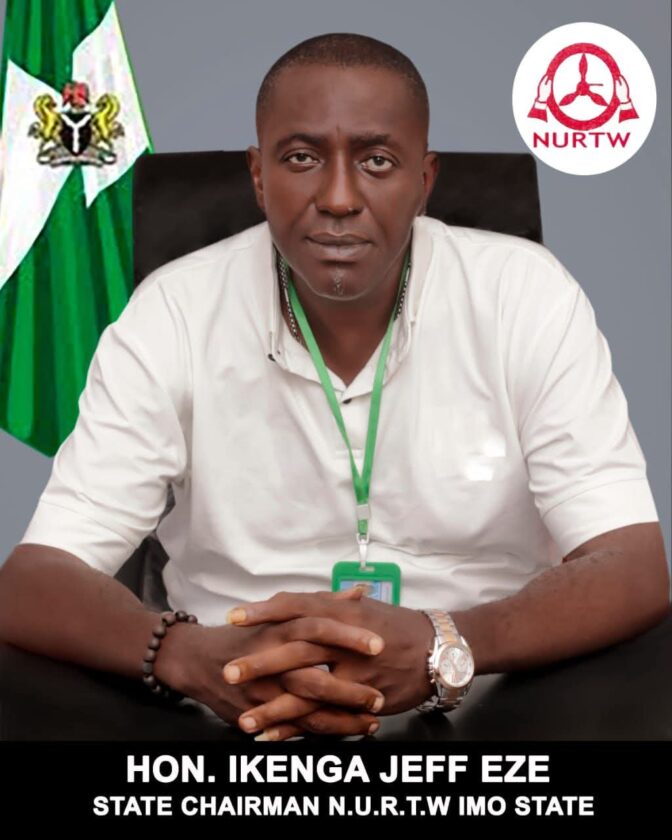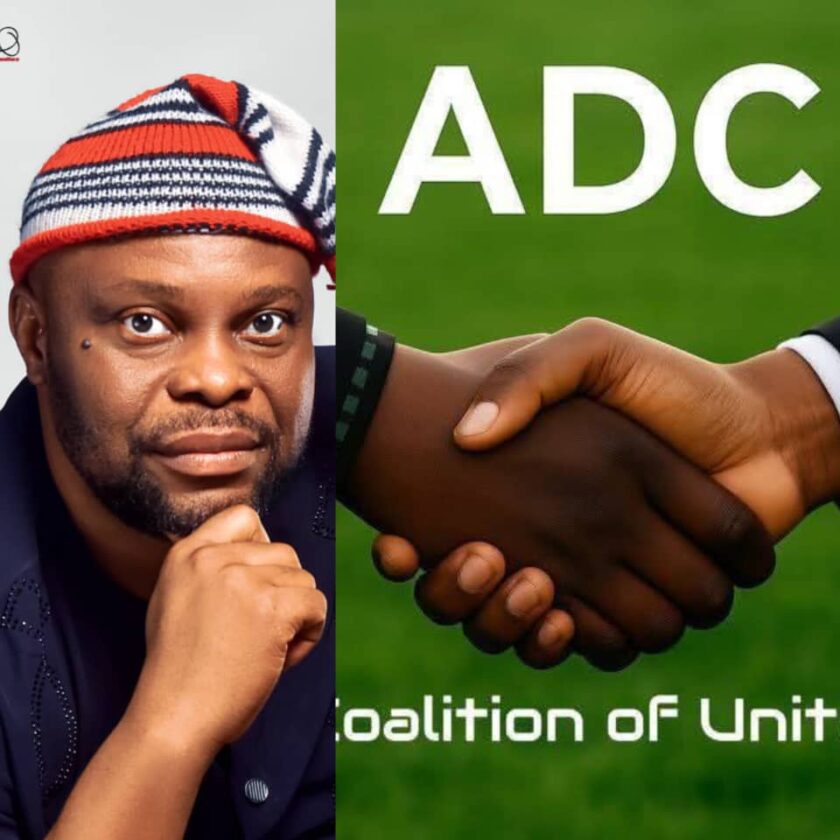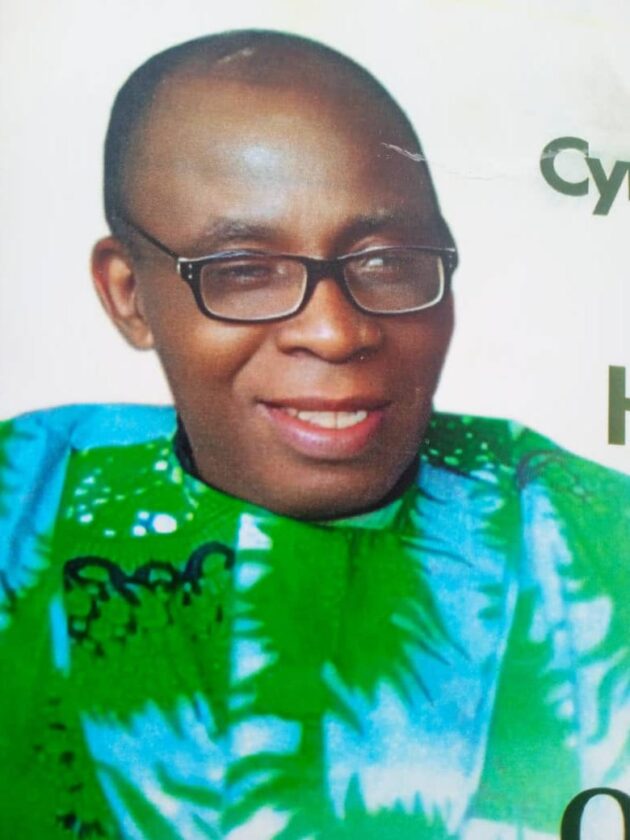As the tumultuous year 2024 clock ticks to a close, Nigerians home and abroad like the global community eagerly await the dawn of 2025. As with all New Years, there are expectations, regrets, anticipations, dreams, plans and even the often laughable ’New Year Resolutions’ some of which fade away before the end of the first quarter of the year. But humans are born optimists. Pregnancies occur and there is growth and expectations of development. The child is born and there is hope of the expected milestones of growth both mentally and physically.So when a child is born and does not develop according to the known milestones especially the motor and cognitive stages, naturally the parents and extended family begin to ask questions and plans are made to assist the child lead a near normal life. These days, fatalism that fuels superstition has given room to realistic steps to assist children with physical or learning challenges to develop and maximize their potentials no matter how imperfect. The bottomline however is that the adults in the societal room make efforts to help the child with development challenges.This narrative is a mere illustrative sample of the developmental challenges and how the human community tries to fill the gap. At regional and national levels, Nigeria appears like the child whose development is challenged and the people that pride themselves as the greatest black people on earth have seemingly been oscillating between near development and a situation of total socio-economic chaos resulting in mass poverty and gaining the country the notoriety of the country with the largest number of out-of-school children, the poverty capital of the world, the country with one of the highest number of maternal and child mortality and numerous other development challenges that have impacted the standard of living and life expectancy.
Since 1999 and with the return to civilian democracy in the country, each administration has encountered daunting challenges that seem to worsen with each transition to a new government. The socio-economic problems in the country have in a way stunted the growth of a 64 year old independent Nigeria. But Nigeria has not always been in dire development straits. The descent to anomie started with the post-independent power struggle of which the military took a huge advantage of. Coups and counter coups, a three year war, and political instability almost pushed the country off the edge.The return to civilian democracy in 1999 has signaled some development but it is still not uhuru. The country is still tethering and the socio-economic problems seem to be escalating by the day. There has been a tendency for the blame game between the leaders and the led. The Bottomline line is that both sides of the aisle are casualties of systemic dysfunction.
Nkata Ndi Inyom Igbo Foundation, a socio-cultural group of women of Igbo ancestry or by marriage has since its birthing in 2020 during the COVID-19 lockdown period been concerned about the slow development not just of the region but of the whole country. The group, coming from a background of traditional dual governance of both men and women decided to take the lead by doing something. The group has a Board of Advisers made up of only men working progressively with an all female Board of Trustees giving vent to the motto of the foundation which is “Partnering for Development”.
The vision of the group is to steer both regional and national conversations that could accelerate development. The first word Nkata in Igbo language means conversation. The group believes that the powerful tool of conversation, dialogue or effective communication can be employed to unknot the development crisis that has been affecting the country. They have in the last three years been deeply involved in strategic communication using all necessary tools to address issues of development in the country.For this year’s conference, the group brought together informed and influential Nigerians to Abuja to discuss the theme, “Driving Transformation Through Value Re-Orientation, Inclusive Leadership and Sustainability”.This theme was chosen after very wide consultations. The bane of Nigeria’s developmental problems is due to a multiplicity of issues. However, at the root of the problems is the loss of core values that held communities together. The values that do not by any means produce Saints but at least helped the society to uphold certain core values that helped in maintaining a more progressive and cohesive society. The values of integrity, honesty, diligence, respect and other values seem to be on the decline. Ironically, most people assume that the leaderships over the years are to blame but aren’t the leadership taken from the people?
Again, inclusive leadership has been an issue in the democratic space. Civil Rights and Gender advocates have been worried that the Nigerian political space is suffused with masculine energy in that more than 90% of political offices are occupied by men in all tiers of government. What this means is that many qualified women do not get the much desired opportunpartake in leadership. Global institutions like the United Nations, the World Bank and the International Monetary Fund (IMF) all have research findings that show that countries with less opportunities for women are always lagging behind developmentally.Ironically in Nigeria, statistics have shown that women excel in those areas where merit and capacity are the criteria. The informal sector that contributes a lot to the GDP has mainly women operators. Many women are at the helm of many financial institutions as chairmen and CEOs. In the academia, many women are in very high positions just as many perform well in sports, entertainment and music. It therefore beggars belief that when it comes to political inclusion, very few women are allowed to bring their competence and learning to contribute to national development.The near exclusion of women, the youths and those living with disabilities in the democratic process contributes to the lack of development in the country. No bird flies successfully with one wing. This is exactly the reality of the Nigerian situation. The human capital is neither fully developed nor utilized for the good of the country. So the conversation at the conference was robustly about three key points, value-reorientation, inclusive leadership and sustainability.
The varied Speakers at the conference from the different sectors of the Nigerian society spoke brilliantly about the need for an introspection by the Nigerian society. National development is never sourced out. The citizens must choose what path they want to development. The political structure must be inclusive and equitable. The present political exclusion cannot birth a developed nation. The political party structure must change. Competence and merit must be the criteria for leadership selection.According to Rt. Hon. Benjamin Kalu, Deputy Soeaker Nigerian House of Representativesthe 10th assembly who Chaired the Conference, the house would be willing to revisit the gender equity bills and make other laws that would facilitate inclusivity to enhance development. In his speech, he agreed that national development cannot be achieved without women participation given the fact that women are natural builders.Senator Enyinnaya Abaribe, spoke of what he called “the uncomfortable truth”. According to him, while we all acknowledge the loss of values especially amongst his Igbo ethnic group, he believes that women have a role to play in raising their children with admirable values that ennoble. He said the people must go back to the values of integrity, diligence and honesty if any changes must happen to propel development. Acquitting wealth by any means is not a cultural attitude. Wealth in Igbo culture always comes from traceable business
According to the Emir of Kano, HRH Lamido Sanusi II who was Royal Father of the Day, investing in women must be a priority and a national emergency because women hold the key to development. He believes that the idea of brandishing statistics of, maternal and child mortality, malnurished children, out of school children, child brides, female IDPs is defeatist. The governments must try to be proactive right from the cradle because an educated woman holds the key to the prevention of a lot of the socio-economic problems that affect the country. According to the Emir, investment in women development is key to national growth given the great role they play in the lives of their children.The Emir recalled the role he played as Central Bank governor in making sure more qualified women were appointed into many financial institutions and today more women are directors not just at the CBN but they are also CEOs of many banks. He went further to advise Nigerians about values that matter. He believes the people must distinguish between what and who they are. In his view, what you are might be a position but who you are is the value you bring to the people through what you are.The former First Lady of Ekiti state, Erelu Adebisi Adeleye-Fayemi a renowned civil and gender rights advocate reiterated her call for the protection and empowerment of the girl child or woman by ensuring they are educated, certain harmful cultural practice eradicated because rather than enhance development, those harmful cultural practices negatively affect not just the woman but the society at large. In her view, every woman who is denied a seat at the table, every girl who is denied education, every woman under the burden of domestic violence takes the country down the ladder of underdevelopment.
Timi Koripami-Agary (PhD), a retired permanent Secretary and activist often called Mama Amnesty for her very effective role in the amnesty programme in the Niger Delta was the Mother of the Day at the conference. As a very renowned mediator on Labour, gender and conflict issues she maintains that development cannot happen like magic. She insists that the country must be conscious of the value of women and equity to development. It would be delusional to assume that development can come without peace and gender justice rooted on the justice system that guarantees equity for all.The conversation as is being advocated by the Nkata group should be embraced by Nigerians from all regions because of the interdependence of all the regions. Bringing the conference to Abuja and the coalition of Nigerians from almost all tribes in the country was a good way to prepare the people for the coming year. There is no alternative to the national conversation that Nkata Ndi Inyom Igbo Foundation has initiated. This is the first part of what happened at the Abuja Conference.
The dialogue continues…




